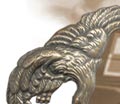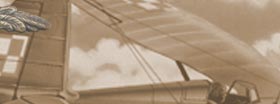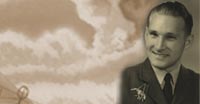The Engineer
By Jan Kasmirek, Derwen Publishing.
UK ISBN 978 1 907084-01-0
The Engineer is a book which polandinexile.com would not normally review as the story lingers somewhere between a history lesson about Poland during World War II and a novel. Many books and films have told the story of the Special Operations Executive (SOE) activities. Numerous authors, for example Sebastian Faulk’s Charlotte Gray or the impeccably researched and atmospheric books by Alan Furst, have captured the spirit of pre-war or war-torn Europe where the eye for detail and plot makes their novels impossible to put down until the last page has been read.
The Engineer is about a Polish-Canadian Teddy Labden (Tadeusz Labycz) drawn into the ‘skulduggery’ of being an agent while studying at Cambridge. With the outbreak of war ‘Tadek’ is first sent to Warsaw to report on Poland’s air force and preparation for war. At the outbreak of war Tadek survives the bombing of Warsaw and escapes to Rumania and then onto France and back to England. The ‘call to arms’ remains strong and has Tadek on a special mission to southern Poland. Here the adventure continues with his capture near Zakopane and subsequent escape with the help of the partisans. Back in London, Tadek observes the complexity of Polish politics and he suspect’s orchestration and treachery by the British towards the Polish Government in exile. Tadek realized the communist infiltration of British secret services had influenced Churchill’s stance and relationship with the Poles in favour of Soviet Russia. With evidence of Sikorski’s assassination, Tadek is eventually forced to flee London.
The historic aspect of the novel almost over-shadows the plot. The ‘voice’ of the main character becomes a little vague and at times comes over a little lacklustre, as the central character witnesses too many historic incidents bending the credibility of the plot. Such level of detailed knowledge of military strategic planning or events would not work with a field operative in this setting. Tadek’s ability to survive is at odds with other agents or the Cichociemni. These agents were the Polish ‘elite’ whose training and art of war is still in the ‘training curriculum’ for Special Forces today. The Cichociemni were a tough dedicated force who literally fought to death and even attempted to resist incorporation into Soviet forces from 1944 onwards as the Soviets marched to Berlin. Somehow the survival rate of the central character seems implausible even for a novel whose luck means there will be a sequel along the same lines.
Julian Hoseason, editor polandinexile.com





